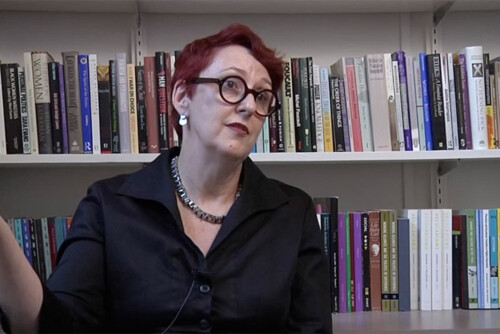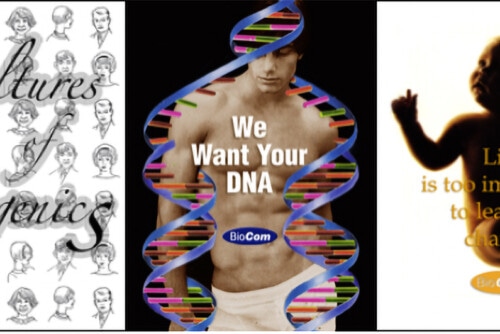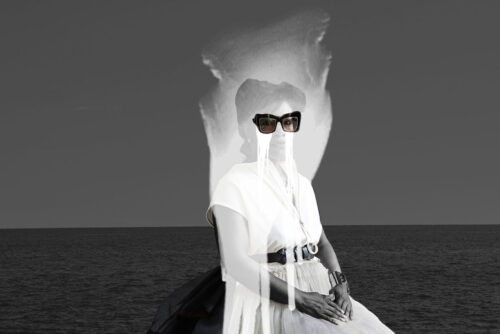I define neoliberalism as the investment and integration of social movements into state-sponsored institutions, such as electoral power, market power, marriage, citizenship, and the military. In my current project, I am examining how black lesbians and transgender women negotiate their gender/sexual identities and their home communities, and how this affects their mental and physical health. This research is timely in the age of a neoliberal “gay agenda” that focuses on gay marriage and the military, while at the same time poor and working-class black families are targeted by the state for perceived deviant sexual behavior, as well as punished by the state (i.e., being cut off social benefits like food stamps and/or welfare). This is even more pressing as we have a black president who, while affirming the institution of marriage for gays and lesbians (often portrayed as white and middle class), has remained silent on issues affecting many urban black people regardless of sexuality, such as incarceration and widespread poverty.
Gender and sexuality are key components in this new neoliberalism of the modern “gay agenda,” and also in the new racism of the right (for example, the construction of a white, middle-class gay identity worthy of state recognition of rights, while poor black and Latina women are constructed as welfare queens undeserving of state benefits). In this context sexuality is often a code word for “race,” and in sexuality and queer studies there can be a lack of intersectional analysis when it comes to the integration of class, race, and sexual politics—which is what my work speaks to.
For example, in my book, Unequal Desires: Race and Erotic Capital in the Stripping Industry, I coined the term “racialized erotic capital” to convey that notions of sexuality and desirability rest on ideas about the racialized other, and are connected to material resources, such as health care, housing, and employment. In this case, exotic dancers of color are discriminated against within the stripping industry, not just because of race, but also notions of a deviant sexuality in an environment where sex and sexuality were being sold. This resulted in increased violence, less desirable shifts, and lower wages for these women than for their white counterparts. Yet, prior to my book, the issue of race within US sex work was understudied, so this speaks to the need to examine racialized ideas of sexuality within the field of sexuality and queer studies.
In my work, I argue that one way to move across these boundaries is by integrating sexuality, race, and class within queer theory and the field of ethnic studies. As feminist activists engage issues of immigration, the housing crisis, gay marriage, and health care, we must use an intersectional approach that does not view these as single issues, but connected. As queer scholars we must question moves of a neoliberal gay agenda that is pitted against the rights and concerns of poor communities of color, across sexuality.
As I stated above, my current project examines the role of sexuality, race, mental health, and identity among inner-city black lesbians and transgender women in North Philadelphia. I argue that instead of coming out into a lesbian identity, and leaving their racialized home communities for an LGBT one that may be predominately white, they are instead “staying in,” meaning that these women claim a lesbian identity, while living in their inner-city black/Latina communities, and that they had several strategies for doing this. For example, one surprising observation I have found thus far in my research is that some lesbian-identified women purposely dissociate from LGBT issues in favor of “race”-based issues, such as prisons, affirmative action, and black unemployment. In other words, while these women claim a lesbian identity, their political commitments are to their black communities, across sexuality, not in an LGBT community. Some critics may consider this behavior to be a conservative approach to an LGBT identity, and view the behavior of the women in my study as resulting from internalized homophobia. However, while it is true that some of the women in my research may suffer from internalized homophobia, and, thus, this is the reason for them disconnecting from LGBT issues, I would like to offer a different reading of this behavior.
To reiterate my initial point, sexuality has become a topic of a neoliberal agenda with the recent emphasis on gay marriage and gays and lesbians in the military. For instance, just recently the Supreme Court voted that Proposition 8 in California was unconstitutional, which was a major win for gay-marriage-rights activists. However, simultaneously, the Supreme Court also eradicated Section 4 of the Voting Rights Act, making it more difficult for poor/working-class people of color to vote. As LGBT scholars who support marriage equality, how do we make sense of these disparate rulings without supporting a homonormative agenda at the expense of working-class people of color of various sexualities?
Returning to the black lesbians in my study who appear to abandon LGBT issues for racial ones, we may find some answers. The women in my study provide housing for formerly incarcerated mothers, some of whom are lesbians; fight against the closing of public schools; and fight for black women to be employed. This is especially important for gender-non-conforming black women, who have one of the highest unemployment rates. Thus, for these women, the salient issues are not just those which surround questions of gay marriage but housing, health care, and jobs. I see the women in my study leading a movement that is counter to the prevailing currents of gay and lesbian neoliberal politics, and inclusive of issues beyond marriage and the military. Hopefully, other LGBT scholars and activists will follow their lead.




